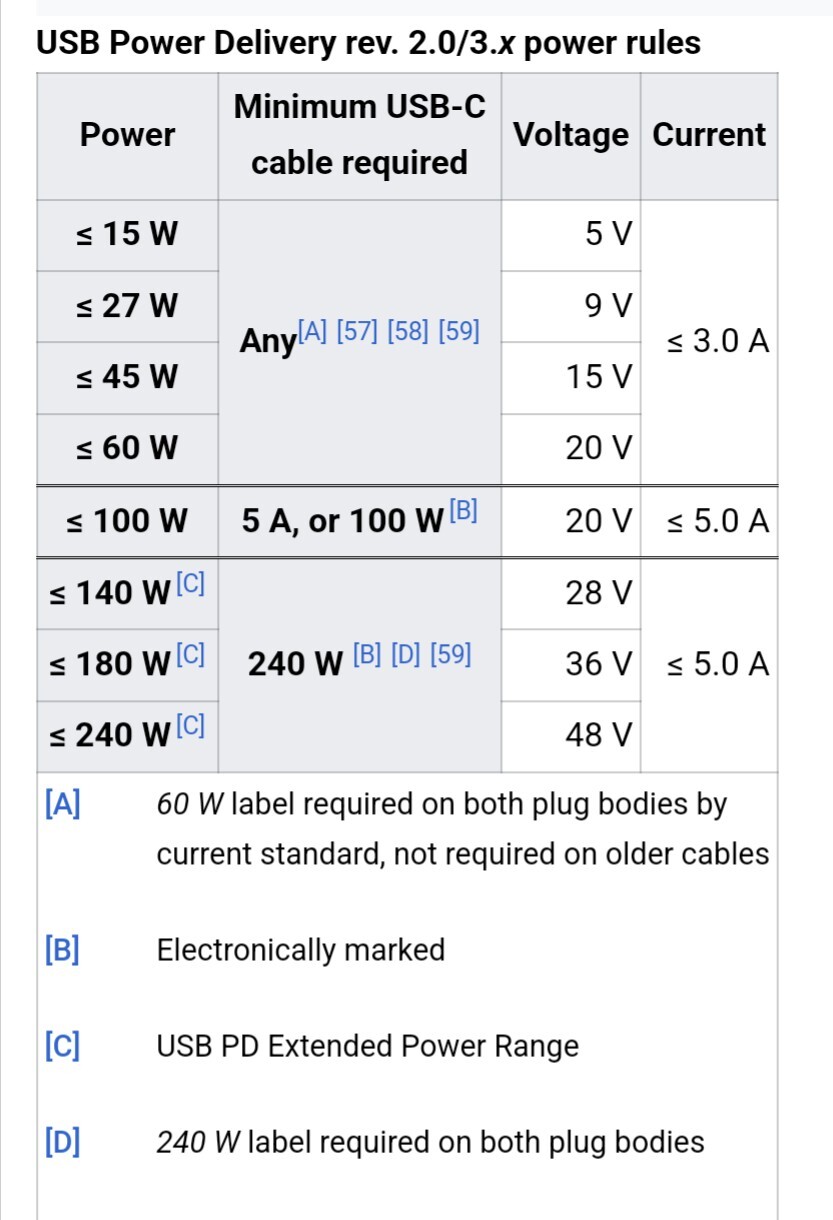

No USB power plug operates at 5 V when providing 65 Watts. That would be 13 Amps. Both power plugs most likey use 15 or 20 volts internally. 19 volts is not allowed over USB.
Edit: Here is a short summary of the USB-PD spec from Wikipedia



No USB power plug operates at 5 V when providing 65 Watts. That would be 13 Amps. Both power plugs most likey use 15 or 20 volts internally. 19 volts is not allowed over USB.
Edit: Here is a short summary of the USB-PD spec from Wikipedia



You can trim it even further:
For a start, try hosting something in your own home. A raspberry or an older PC or laptop should be enough.
My first projects were a print server (so I can print via wifi) and a file server. Try to find something that is useful for you.
Only start hosting on the internet when you’ve learned the basics and have more experience.
As for me, I just visit this site to see the next sales. But it’s a neat idea
I agree, but I understood this question in the context of a homelab.
And for me, a homelab is not the right place for a public website, for the reasons I mentioned.


No, with these reasons:
I have a VPS for these tasks, and I host a few sites for friends amd family.
I got it a few times over the last years, once on the steam deck.

Grains are “better” than I would have expected.


Just one open source example … freeradius has an option to log passwords:
log {
destination = files
auth = no
auth_badpass = no
auth_goodpass = no
}
Or another example: The apache web server has a module that dumps all POST data, with passwords, in plain text:
mod_dumpioallows for the logging of all input received by Apache and/or all output sent by Apache to be logged (dumped) to the error.log file. The data logging is done right after SSL decoding (for input) and right before SSL encoding (for output). As can be expected, this can produce extreme volumes of data, and should only be used when debugging problems.
I don’t agree that this is “absolutely malice”, it could also be stupidity and forgetfulness.


This is not about facebook not hashing credentials, it is that they appeared in internal logs.
Facebook is probing a series of security failures in which employees built applications that logged unencrypted password data for Facebook users and stored it in plain text on internal company servers.
Source: Krebs on Security


By supporting work on a freelance basis
This sounds like Valve is paying devs to work full time on arch, and thus managing to achive more than volunteers could.


You’re right, my comment was oversimplified.


Because both ways are used. Microsoft relies on file names, linux on the first bytes of the file.


I don’t think “most” applies here. Text-based files, pdf, media files and most executeable files are not .zip.


I think it makes sense from a programming view. When you have a document, you can add all the media files and pack them together as one archive. Then the program sets the filename to .docx so everyone knows that they need an office program to open that file.
For the users, all you need to know is what program can open which files. If every document would be named .zip, you would have no idea if it was a spreadsheet or slides for your presentation.


OP refers to the fact that you can rename some filetypes to .zip and unpack them.
Notable examples microsoft office files (.docx) or android apps (.apk).
Counterexample are media files (mp3, mp4, jpg).


Thanks for the hint on nVidia. That might explain my issue
You’re right, Google released their vision in 2023, here is what it says regarding lifespan:
a reduction of TLS server authentication subscriber certificate maximum validity from 398 days to 90 days. Reducing certificate lifetime encourages automation and the adoption of practices that will drive the ecosystem away from baroque, time-consuming, and error-prone issuance processes. These changes will allow for faster adoption of emerging security capabilities and best practices, and promote the agility required to transition the ecosystem to quantum-resistant algorithms quickly. Decreasing certificate lifetime will also reduce ecosystem reliance on “broken” revocation checking solutions that cannot fail-closed and, in turn, offer incomplete protection. Additionally, shorter-lived certificates will decrease the impact of unexpected Certificate Transparency Log disqualifications.


If you measure from the surrounding area, the Mauna Kea is higher than Mt. Everest.
This kind of spam is luckily pretty rare in europe, I get maybe one or two spam calls a year.